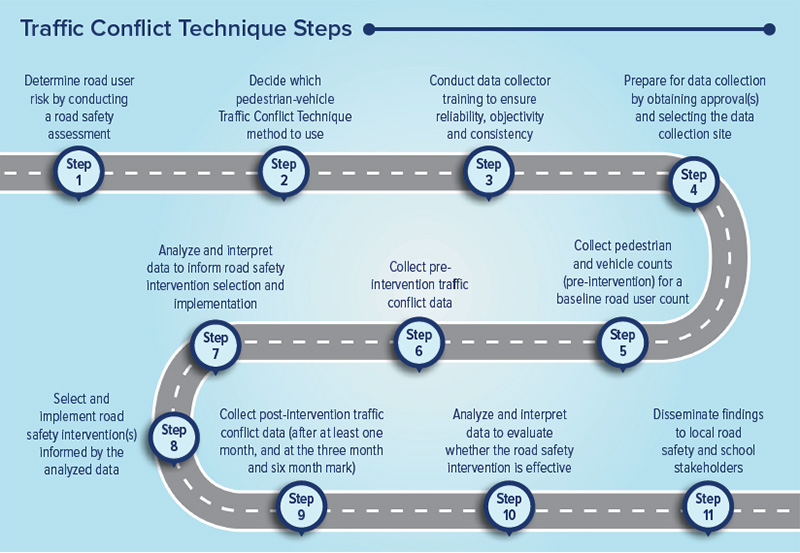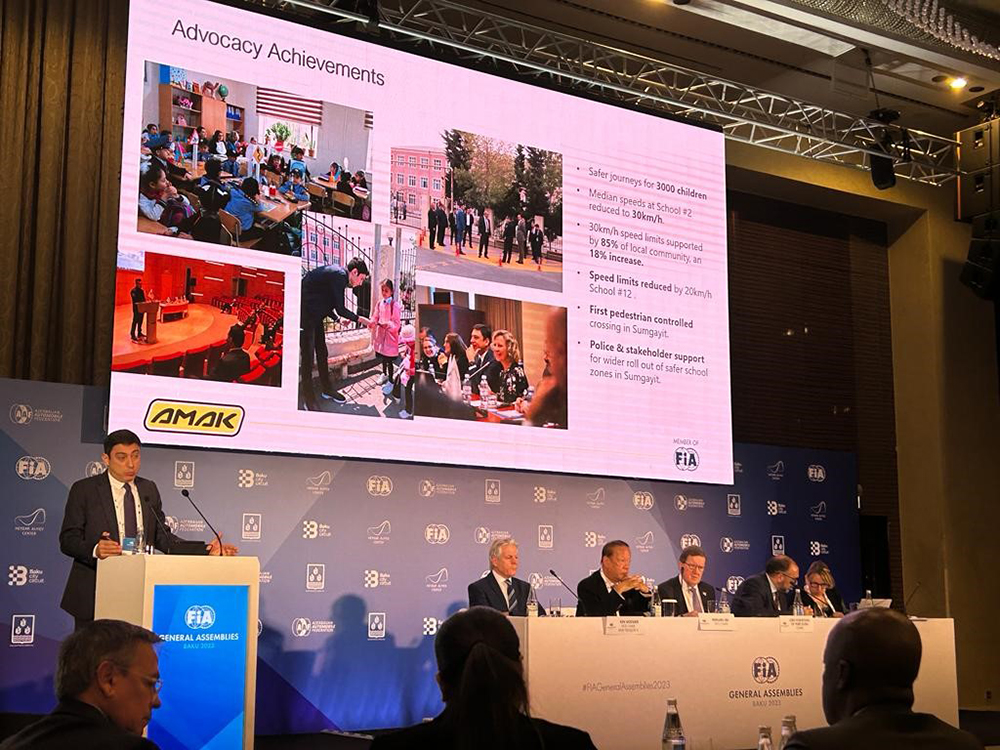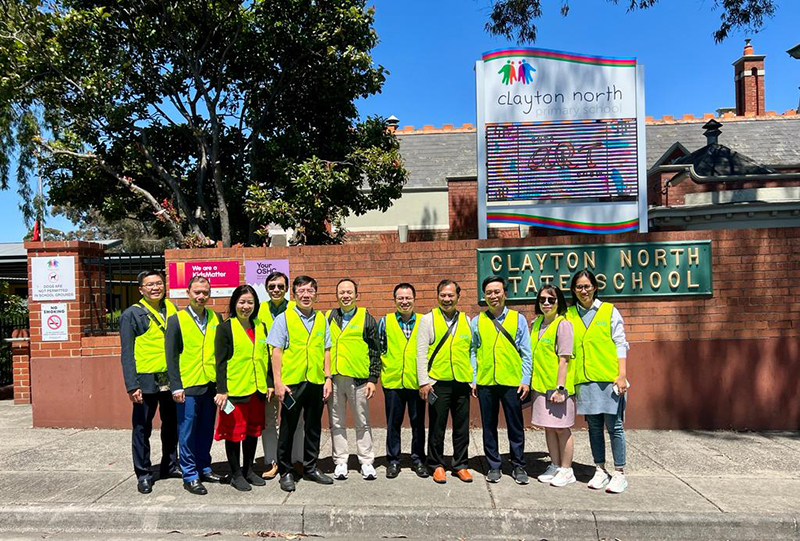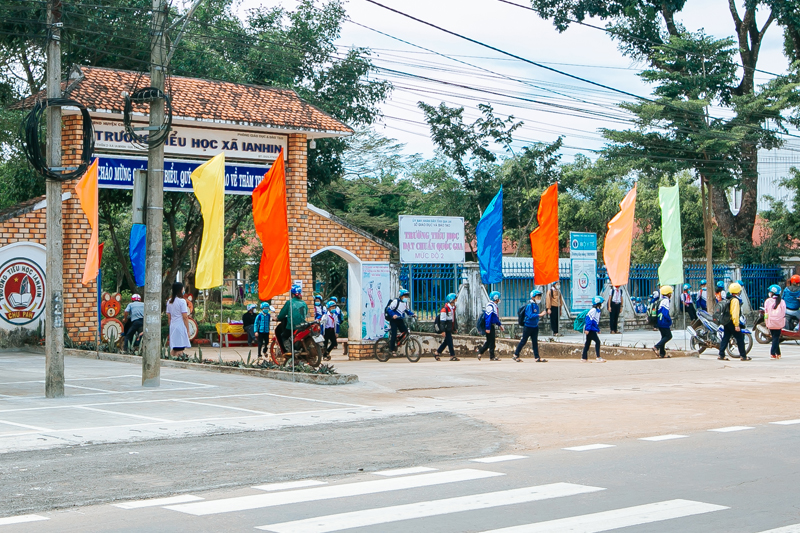New traffic conflict technique toolkit released for safer school zones
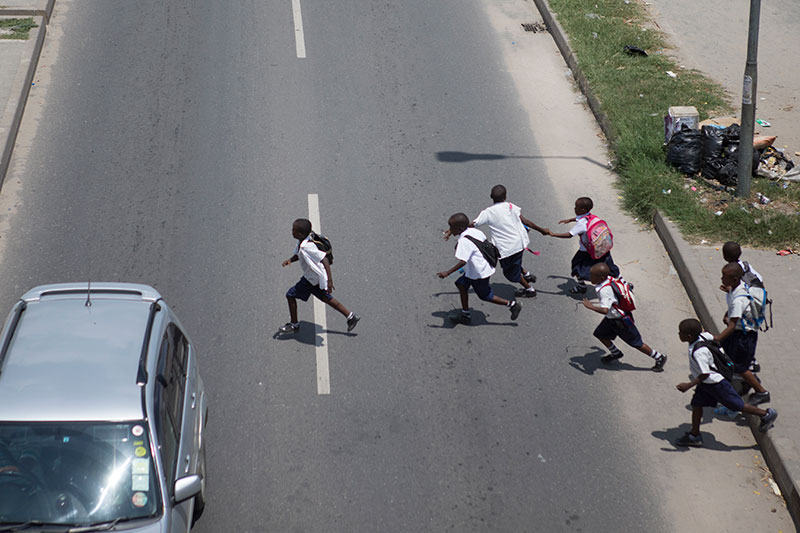
A new Traffic Conflict Technique (TCT) toolkit for school zones has been developed by the Centers for Disease Control and Prevention (CDC) and its National Foundation (CDC Foundation) thanks to funding from the FIA Foundation and support from Child Health Initiative partners Amend, AIP Foundation and ITDP.
TCT is a simple, evidence-based, low-cost approach to evaluate the impact of road safety interventions to prevent crashes, injuries, and deaths. By counting and studying traffic conflicts, TCT can help decision makers select and evaluate the most effective strategies for improving road safety and preventing injuries. It is particularly helpful in locations where data are scarce.
The comprehensive guide, which has been incorporated into the Child Health Initiative Toolkit, is designed for anyone interested in improving road safety, with a focus on children and the journey to school. It specifically focuses on traffic conflicts between vulnerable road users - student pedestrians and cyclists - and motorised traffic occurring in and around school zones in low- and middle-income countries. These types of traffic conflicts are referred to as pedestrian-vehicle conflicts. The guide offers different types of TCT based on available resources and level of expertise.
The Toolkit has been tested and piloted in three countries: Vietnam by AIP Foundation; Tanzania by Amend; and ITDP in Mexico. Further implementation and research into the impact of the interventions will be used to refine the Toolkit. It is a helpful complement to iRAP’s Star Ratings for Schools, which assesses the safety of infrastructure around schools. The TCT toolkit assesses infrastructure from a behavioural perspective, accounting for the fact that humans can interact with safe infrastructure in unsafe ways, and highlighting where modifications should be made to encourage safer behaviour.
Natalie Draisin, North America Director and UN Representative, said: “We developed this toolkit together because we were hearing from partners around the world that they didn’t have the data needed to support road safety interventions around schools, or to prioritize intervention locations. We cannot wait for children to be harmed before we make roads safer. Insufficient data is no longer an excuse. The TCT toolkit offers low-cost options to gather data, based on available resources and levels of expertise. The journey to school is often the most dangerous part of a child’s day – and this toolkit helps clarify the risks and solutions to make every journey safer.”
